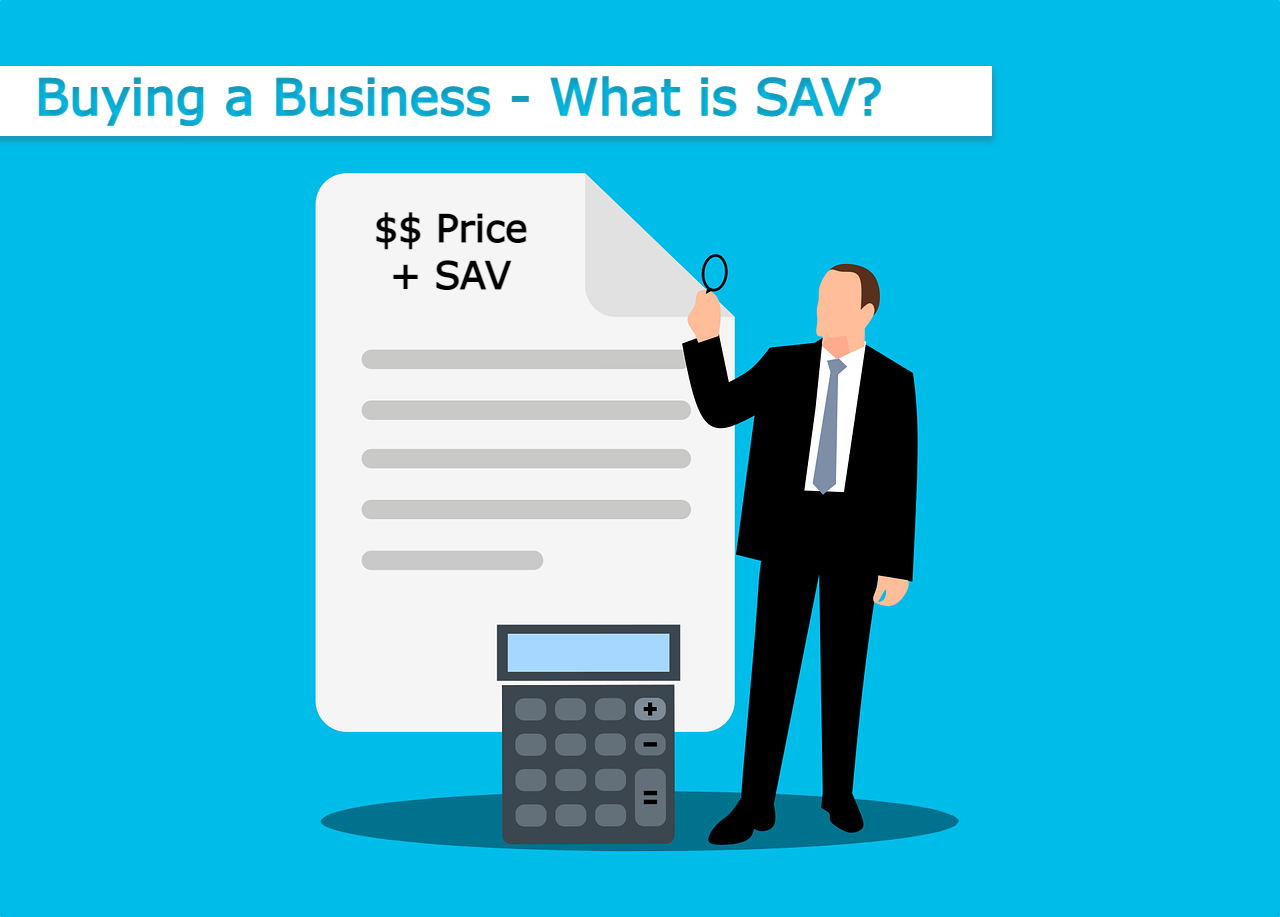
When buying a business or looking at a business for sale the acronym SAV stands for “stock at valuation” this refers to the price or value placed on the stock held at that business at a given time. Ensure you pay a fair and accurate price for the stock of a business by understanding SAV and avoiding the common pitfalls.
What does SAV mean? “ Stock at Valuation”
When buying a business or looking at a business for sale the acronym SAV stands for "stock at valuation" this refers to the price or value placed on the stock held at that business at a given time.
The stock value is not included in the asking price and is typically valued just prior to the sale of the business. The final sale price a buyer must pay to the vendor will be adjusted after the stock value has been calculated, that being Asking Price + SAV.
A retail store has an asking price of $200,000 + SAV. The stocktake indicates $200,000 worth of unsold stock. The final sale price would be $400,000.
Why is SAV valued separately?
Solid trading history, goodwill and future potential are clear indicators of a good business to buy and determine the likely value of a business for sale. Buyers primarily focus on financial metrics to determine the valuation of a business including revenue, profit, overheads, operating expenses and margins.
Whilst stock levels don't add to a businesses overall value they do offer insight into the health of a business and its operations. Stock levels are determined by a range of variables and are dependent on circumstances including type of business, products, quantities, space required, overall demand and seasonality for example a winter clothing store would require more stock in the winter months.
Timing is another reason stock at valuation is separated from the asking price. Timing plays a large role in what value can be attributed to the stock at any one time, hence the exact value will depend on the timing of the business transfer. For example, in demand stock from a clothing store would differ in value to left over stock from last season, or the SAV of perishable items would be determined by expiry or sell by dates of the goods.
Who places a value on that stock?
Ideally an Independent Valuer who specialises in SAV will undertake the stocktake. The value of the stock is not based upon the selling price but the cost price inclusive of freight charges. Cost price refers to the price paid for the items from wholesalers, manufacturers or suppliers.
Should you pay cost price for those items diminishing in value?
No - don’t pay for outdated or unsaleable stock. It is important to set the parameters for the stocktake process to ensure stock bought is saleable. The resale value of any stock is determined by the useable/sell by date, if their value is diminishing then a figure based on depreciation will be calculated. Saleability of stock will be determined prior to stocktake or an agreement between the two parties during.
When buying a business, know exactly what you're buying! Stock must be monitored accordingly to understand the true performance of a business. Be wary of a sudden decline in stock levels as it may indicate a business liquidating stock to demonstrate a higher profit. SAV must take into account what the new owner can sell that stock for, it is critical to time it right to avoid overpaying for out of date items and unsaleable stock.
Ensure you pay a fair and accurate price for the stock of a business by understanding Stock at Valuation (SAV) and avoiding the traps and common pitfalls.
